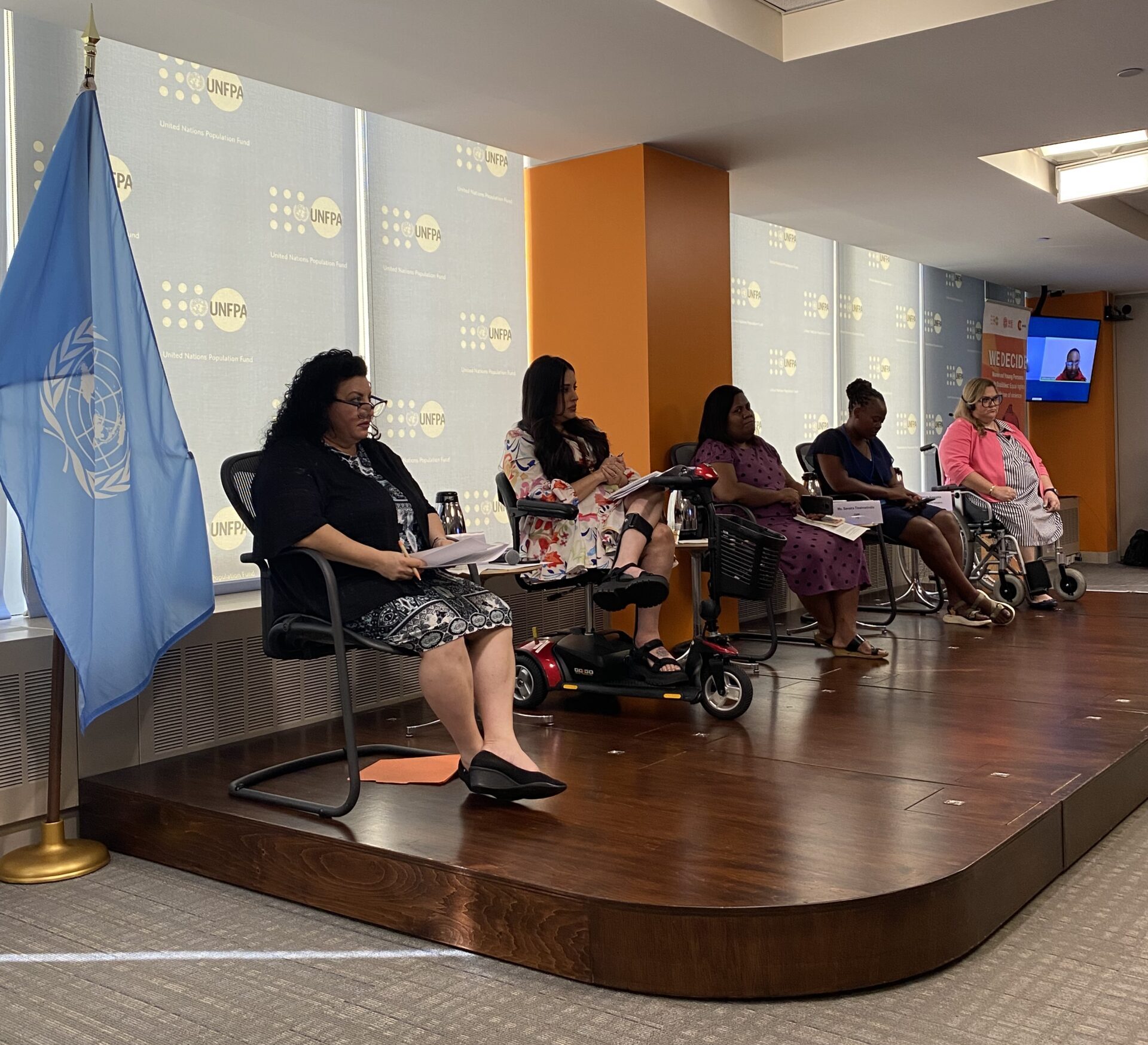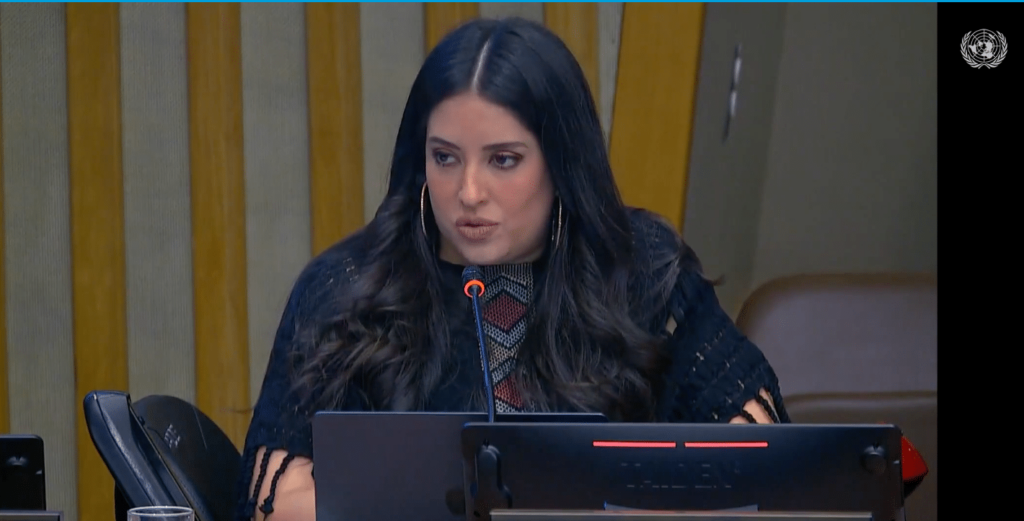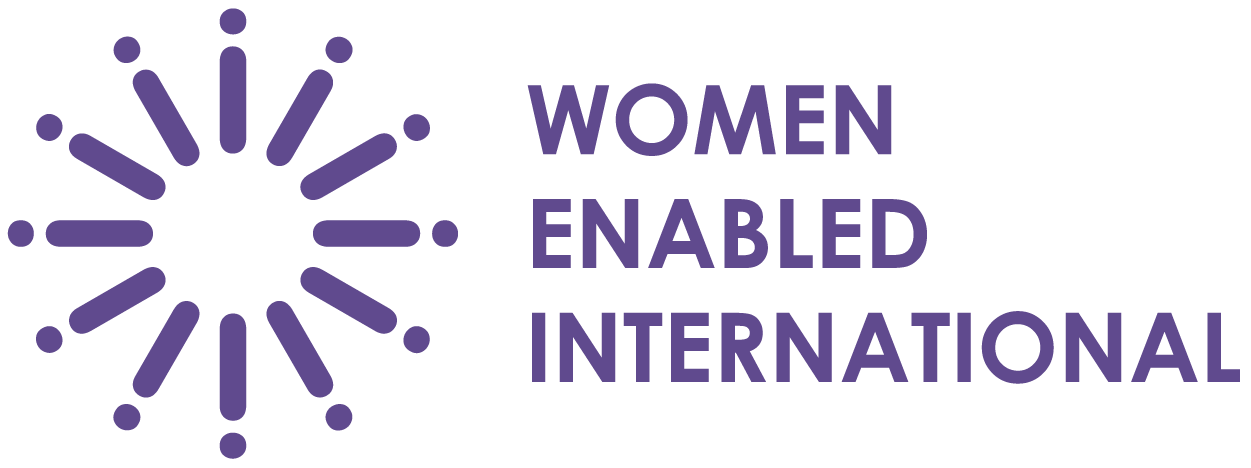Representation is key – at all levels and in all spaces where disability and gender-related rights and justice are on the table. This was evident at the 16th Session of the Conference of States Parties to the Convention on the Rights of Persons with Disabilities (CoSP), held at the United Nations in New York this June. WEI staff hosted, sponsored, and participated in six events over three days, mobilizing our community and bringing critical perspectives and expertise at the intersection of gender and disability.
 We organized and moderated a panel discussion on innovative interventions to ensure access to sexual and reproductive health (SRH), alongside panelists and co-sponsors from the United Nations Population Fund (UNFPA), the Permanent UN Missions of Finland, Norway, and Morocco, Validity Foundation, and advocates from Botswana, Fiji, and Latin America. They shared compelling results and good practices from interventions such as UNFPA’s global We Decide Programme and other on-going local projects that promote access to SRH and gender-based violence information and services for women, girls, and gender-diverse people with disabilities. They also made the case for more targeted research and data to strengthen access to comprehensive services.
We organized and moderated a panel discussion on innovative interventions to ensure access to sexual and reproductive health (SRH), alongside panelists and co-sponsors from the United Nations Population Fund (UNFPA), the Permanent UN Missions of Finland, Norway, and Morocco, Validity Foundation, and advocates from Botswana, Fiji, and Latin America. They shared compelling results and good practices from interventions such as UNFPA’s global We Decide Programme and other on-going local projects that promote access to SRH and gender-based violence information and services for women, girls, and gender-diverse people with disabilities. They also made the case for more targeted research and data to strengthen access to comprehensive services.
WEI also worked with the UN Committee on the Rights of Persons with Disabilities to co-host a well-attended and well-received side event, “Stronger Together: Gender and Disability Intersectional Movements at the Forefront of Human Rights Advocacy.” During the event, we learned about the work of a deaf indigenous youth in Canada, from a queer disabled advocate in Kenya advancing rights through cross-religious understanding, and from an advocate with psychosocial disabilities working to transform communities for inclusion globally, all of whom are working across movements and issues to affect change. With a focus on where more intersectional advocacy is needed to meet increasingly-urgent global challenges, the event brought together a diverse set of co-sponsors committed to intersectional advocacy. The resounding response to this event proved that there is strong appetite for more of this work and for bringing feminist disabled leaders together in multi-stakeholder cross-movement collaborations in the future.

Another powerful moment was when WEI Executive Director Maryangel Garcia Ramos delivered remarks to the official roundtable meeting of States Parties. Her dynamic message advocated for intersectionality, inclusion, and disability justice. She asserted that the diversity of our movement is a strength and is integral to our goal of ending discrimination, while highlighting where the gender and disability intersectional movement is present and having a significant impact.
In each of these forums, WEI promoted the leadership of feminists with disabilities and sought to deepen connections across movements. Our goal was to ensure that the discussions, decisions, and outcomes at CoSP are not just inclusive – but also empowering and effective in their impact on individuals and communities worldwide.
